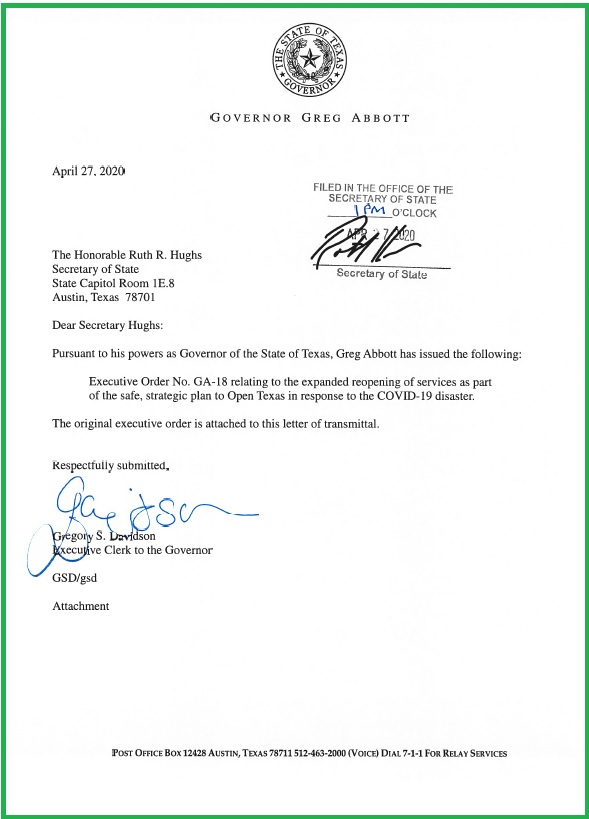Buckingham bill would bind electors

By Lew K. Cohn
Managing Editor
The Highlander
State Senator-elect Dawn Buckingham filed her first bill last week, seeking to hold Texas' presidential electors to their pledges to vote for the candidate elected by the majority of Texas voters.
Senate Bill 394, titled the Texas Elector Accountability Act, would make so-called “faithless electors” who fail to vote for the Texas general election winner subject to a civil penalty of $5,000. It would also make them ineligible to serve again as state electors in subsequent elections.
The bill was filed by District 24 Sen. Buckingham on Dec. 21 and will be considered during the next legislative session, which begins in January. A companion bill was filed in the Texas House by District 14 Rep. John Raney, R-College Station.
“Electoral College members from Texas proudly pushed President-elect Donald Trump over the required number of 270 electoral votes needed to win the presidency,” Buckingham said. “That is what our state's citizens expected, as a majority of Texans who went to the polls in November voted to put Trump in the White House. What was unexpected is that some electors did not honor their pledge to cast their electoral vote for the choice of Texas voters.
“Electors signed a non-binding pledge at the state's GOP convention to vote for the candidate who won our state in November. However, since current state law does not currently require electors to vote in accordance with the state's general election results, some dishonored their pledge without penalty when they cast their actual vote this week.”
On Dec. 19, Texas Republican presidential elector Chris Suprun carried through with his promise to not cast his ballot for the Trump-Pence team, despite their winning the vote in Texas' Nov. 8 general election. Suprun instead cast his ballot for former candidate and Ohio Gov. John Kasich. He also stepped down from his position as a GOP precinct chairman in Dallas County. A second presidential elector, who was not immediately identified, voted instead for former Texas Rep. Ron Paul.
Buckingham noted that Texas Gov. Greg Abbott, among others, called those actions “a charade” and “a circus” and called for an end to the practice of casting a faithless vote.
“Texans are known for making sure their word is their bond: saying what they mean and meaning what they say,” she said. “SB 394, the 'Texas Elector Accountability Act,' will restore trust to the electoral college process in our great state.”
Texas has 38 Electoral College votes, second most of any state. As a winner-takes-all state, a slate of electors from the winning party is given the right to select the state's choice for president during the Electoral College vote, which occurs about a month after the general election.






